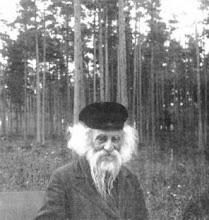Choice Blindness - Frontal Cortex
And yet, that’s exactly what happened. According to the scientists, less than a third of participants realized at any point during the experiment that their preferences had been switched. In other words, the vast majority of consumers failed to notice any difference between their intended decision (“I really want Cinnamon-Apple jam”) and the actual outcome of their decision (getting bitter grapefruit jam instead). We spend so much time obsessing over our consumer choices – I just spent ten minutes debating the merits of Guatemalan coffee beans versus Indonesian beans – but this experiment suggests that all this analysis is an enormous waste of energy. I could have just gotten Sanka: My olfactory system is too stupid to notice the difference.
What’s most unsettling, however, is that we are completely ignorant of how fallible our perceptions are. In this study, for instance, the consumers were convinced that it was extremely easy to tell the difference between these pairs of jam and tea. They insisted that they would always be able to tell grapefruit jam and cinnamon-apple jam apart. But they were wrong, just as I’m wrong to believe that I would be able to reliably pick out the difference between all these different kinds of coffee beans. We are all blind to our own choice blindness.
One of my favorite blog.
I always wondered, if the market is so efficient, and people know that they are choice-blind, will Starbucks still succeed? It seems like there is a contradiction here.
I guess Starbucks offers more then just coffee e.g., status signaling (you can afford expensive coffee), free internet (opposite of reason one, no?), or an environment to meet friends.

